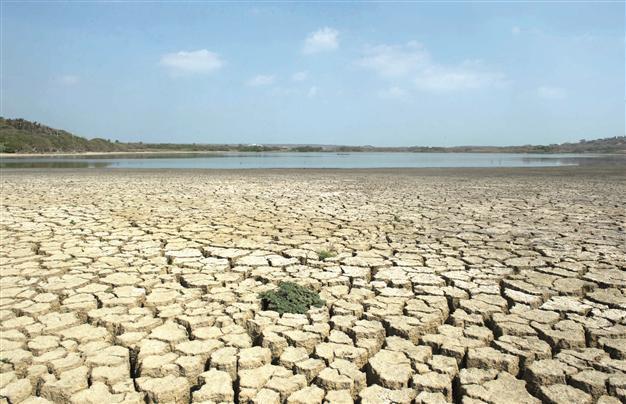‘Door closing’ for meaningful global warming action: UN
WELLINGTON - Agence France-Presse

A drought affecting Colombia exposes the bed of El Cisne lake. UN climate chief said time was running out for action on global warming. AFP photo
U.N. climate change chief Christiana Figueres warned Sept. 2 time was running out for meaningful action on global warming, citing the plight of low-lying Pacific nations facing ever rising seas.Figueres, in Samoa for a U.N. conference on small island states, said the impact of climate change was greatest on Pacific nations, even though they had contributed little to the problem. “Climate change is the greatest threat these islands face and they are recognized as the bellwether of global efforts to address this issue,” she told Agence France-Presse.
“Unless the world acts on climate change in a timely way, they are going to be the hardest hit.” Figueres said rising seas not only eroded the coastlines of island states, they also spoiled water supplies when they entered the water table and swamped agricultural land, rendering it barren.
Warming also meant more cyclones and storms battered the islands, while planning was underway for a worst-case scenario where populations of climate change refugees would have to be relocated from their homelands. “Kiribati (which has purchased land in neighboring Fiji) is probably the most famous, but countries as large as Papua New Guinea are already starting to identify which are their most threatened populations,” she said.
“These are extreme measures that these islands have to look at. Of course they, and the rest of the world, want migration of populations out of the islands to be kept at a minimum.”
Figueres said the situation facing island nations underlined the need for progress in the quest to seal a global pact on greenhouse gas emissions by the end of 2015.
The U.N. wants to limit global warming to two degrees Celsius over pre-Industrial Revolution levels, which scientists say is the minimum needed to stabilize the climate.
“The science tells us that we have to stay under two degrees temperature-wise and that the door is closing quickly,” she said. “It’s still possible for us to stay under two degrees but we have to do it.”
















